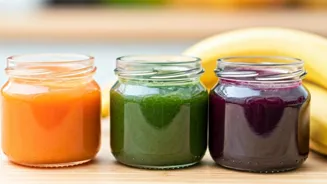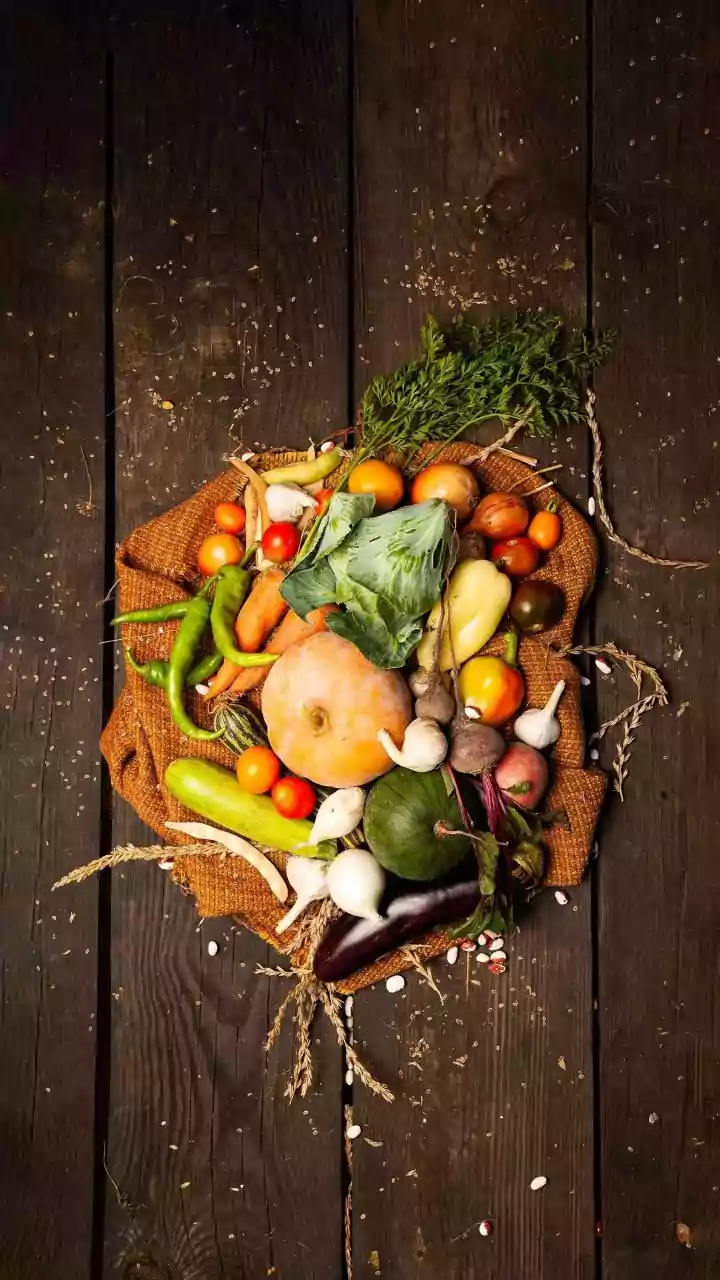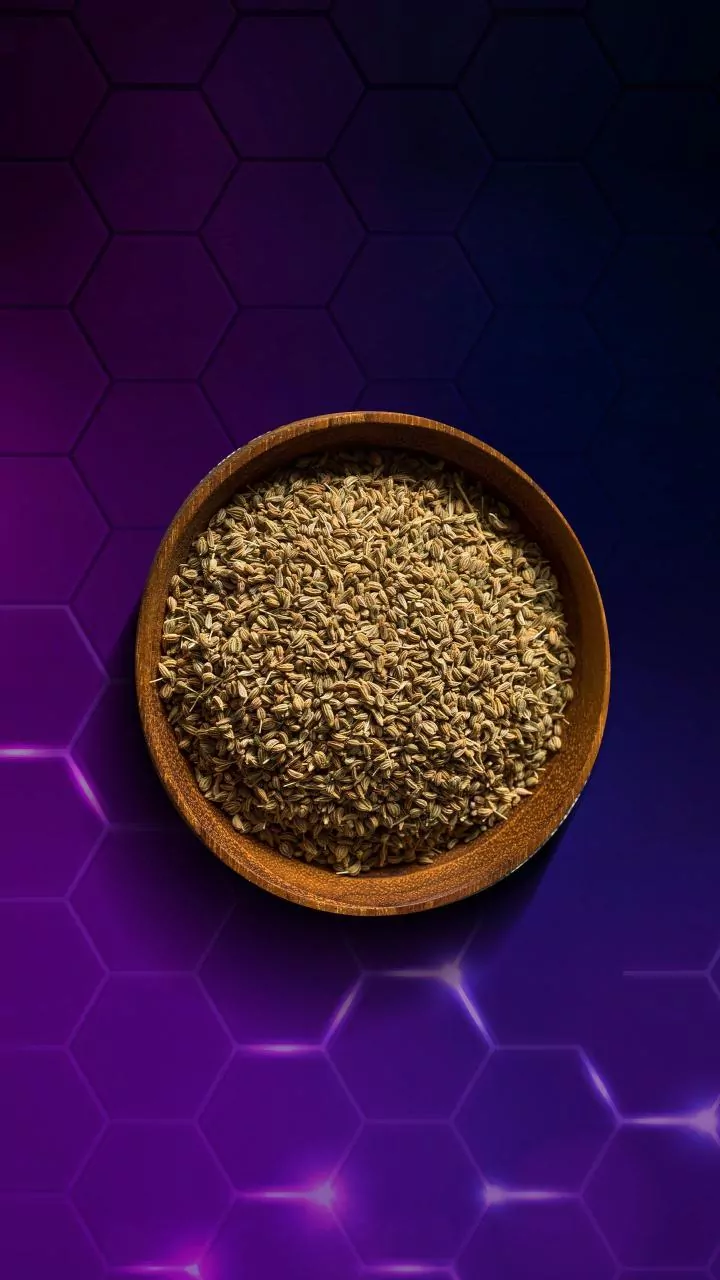Homemade vs. Commercial
When a baby begins eating solid food, making your own is a great way to ensure optimal health. Commercial baby foods often have ingredients like genetically
modified organisms (GMOs), additives, and sugar. Even organic store-bought options may not be ideal. The vegetables are often microwaved and diluted with water, and the crucial fat needed for nutrient absorption is missing. By preparing food at home, parents can carefully control ingredients, ensuring their child receives the most beneficial nutrients.
Cultured Mango Butter
This recipe introduces a lightly fermented mango butter. It is a delicious probiotic food that supports gut health, suitable for babies. It can be incorporated into a baby's diet in various ways, such as with pancakes, waffles, oatmeal, or enjoyed straight from the spoon. The fermentation process enhances its nutritional value and creates beneficial probiotics. This butter can be a tasty and beneficial addition to a baby's diet, offering a blend of flavor and gut-friendly properties, contributing to overall well-being.
Sheep Milk Benefits
This section discusses sheep milk and its nutritional advantages over other types of dairy. Sheep milk has a unique composition, making it easier to digest than cow's milk for many babies. Sheep milk cheeses are also discussed, highlighting their suitability for baby food recipes. This approach allows parents to experiment with different dairy options, which is particularly beneficial for babies with sensitivities. The article also encourages parents to explore diverse dairy products to meet individual baby needs.
Camel Milk Formula
For parents who can't breastfeed or don't have enough quality donor milk, homemade formula is a practical solution. This recipe provides a safe, nutritious, and well-balanced alternative to commercial formulas. Camel milk is known for its closeness to human milk, making it a gentle option. Using a homemade formula gives mothers control over the ingredients, thereby allowing them to avoid the additives and unwanted elements found in some commercial formulas. The recipe offers a means for parents to ensure their baby receives the nutrients they need.
Goat Milk Formula
This recipe offers guidance on creating a homemade goat milk baby formula, which is formulated to closely resemble human breast milk. The formula's design prioritizes mimicking the properties of breast milk as closely as possible. This approach helps to address concerns about the ingredients in commercial formulas. Homemade options let parents carefully select the ingredients, and adjust the formula to align with the baby's specific health needs. This recipe helps parents to take an active role in feeding their infants.
Separating Whey Yogurt
Whey, both in liquid and whole food form, is an essential starter culture for probiotic-rich, health-enhancing fermented foods and drinks. This section focuses on how to separate whey from plain store-bought yogurt. The whey is an excellent base for probiotics, which benefits a baby's gut health and supports overall development. This technique allows parents to gain maximum nutritional value. The process itself is straightforward. Liquid whey can be used in various recipes, making it a versatile ingredient for healthy baby food preparation.
Sweet Potato Casserole
The sweet potato casserole recipe is a sugar-free option, perfect for introducing babies to nutritious and flavorful foods. This recipe is suitable as a side dish or as part of a meal. It is a good option for babies because it avoids added sugars while still providing a delicious taste. The ease of preparation is also a benefit, allowing parents to prepare healthy food options quickly. This ensures a baby receives all the essential nutrients without any added sugars.
Best First Food
This highlights a recipe for a baby's first food. The recipe emphasizes the importance of choosing the right first foods to provide the baby with the nutrients needed. Contrary to common beliefs that suggest cereals are the best first food, the article recommends a more traditional approach. This approach focuses on the idea of avoiding processed baby cereals and introducing babies to various nutritious foods. This approach ensures that babies receive a wide range of nutrients from the very beginning.
Vitamin D Boost
Fish eggs are packed with Vitamin D, making them a superior choice to resolve nutritional deficiencies. This section emphasizes the high Vitamin D content of fish eggs, offering an alternative to drops or pills. The article suggests that fish eggs are a safer and more effective way of improving Vitamin D levels in babies. This recipe gives parents a means to support the baby’s well-being. Fish eggs offer a natural way to enhance Vitamin D levels.
Non-Dairy Formula
For babies who cannot tolerate dairy, a homemade, non-dairy formula is offered. The recipe is designed using safe, whole ingredients. The formulation has been designed and tested by a PhD in Nutrition, Dr. Mary Enig. This ensures the recipe offers a balance of essential nutrients, which is beneficial for infants. This recipe is aimed at providing a healthy alternative to commercial formulas for babies who have allergies.
Homemade Formula Recipe
This details a recipe for a homemade baby formula using whole, safe ingredients. It was developed and tested by Dr. Mary Enig, a PhD in Nutrition. The recipe is meant to give parents control over what their child consumes, guaranteeing all ingredients are healthy. By making the formula at home, parents can ensure that their baby receives the essential nutrients.
Making Raw Whey
The recipe explains how to make raw, enzyme, and probiotic-rich liquid whey. The whey is used as a starter culture for home fermentation. The process involves separating the whey from milk. This whey is an excellent source of probiotics, crucial for gut health, and enhances the nutrient content in baby food. The recipe provides a method for preparing whey. Using homemade whey provides babies with a healthy start, offering a base for fermentation.




















